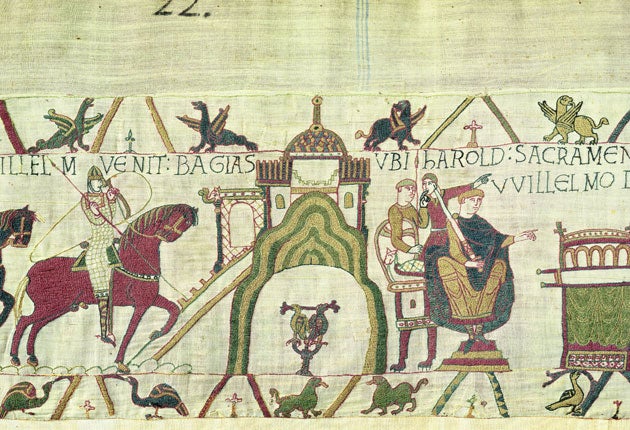What happened to America's invasion of Man Booker? Arifa Akbar, Week in Books

Your support helps us to tell the story
From reproductive rights to climate change to Big Tech, The Independent is on the ground when the story is developing. Whether it's investigating the financials of Elon Musk's pro-Trump PAC or producing our latest documentary, 'The A Word', which shines a light on the American women fighting for reproductive rights, we know how important it is to parse out the facts from the messaging.
At such a critical moment in US history, we need reporters on the ground. Your donation allows us to keep sending journalists to speak to both sides of the story.
The Independent is trusted by Americans across the entire political spectrum. And unlike many other quality news outlets, we choose not to lock Americans out of our reporting and analysis with paywalls. We believe quality journalism should be available to everyone, paid for by those who can afford it.
Your support makes all the difference.So the American’s aren’t coming, despite the column inches of worry that they would descend like a Viking horde and commandeer our prize after Man Booker opened its doors to international writers (beyond its Commonwealth scope). Well, four are coming, I suppose: Siri Hustvedt, Karen Joy Fowler, Joshua Ferris, Richard Powers. Or four and a half if you count Joseph O’Neill (who is Irish/American).
The fear of a takeover was premature. Perhaps this week’s longlist helps us to recognise that American writers aren’t like a McDonald’s franchise: cheap, tasteless, and ubiquitous. That this is the first year the Americans have been allowed in seems neither here nor there – perhaps deliberately so on the part of the jury. Most of the stateside writers have been writing for decades and have earned their place in any literary firmament.
The surprises here are, well, more surprising. Out of 13, just three are women. At least one author – David Nicholls (for Us) but also Fowler (for We Are All Completely Beside Ourselves) – has mainstream ‘pop’ appeal, something of a rarity for an award that defines itself as unabashedly literary. It casts itself, in JM Coetzee’s words (which are placed on top of the longlist press release): “The ultimate prize to win in the English speaking world”. Some might contest Coetzee’s quote, but few could argue with the fact that it is a bold move to include a bestselling author like Nicholls, whose last book, One Day, was made into a Hollywood romance. Us is also a love story, of sorts, though a middle-aged, married-life one.
For Nicholls to be on a longlist for a prize that has, at least in the past, been self-consciously highbrow is a surprise indeed, especially in the wake of the disastrous year when Stella Rimington’s jury was accused of “dumbing down” by shortlisting lightweights.
Another surprise is that, ironically, in the year that Man Booker has gone global, its longlist is led by a – comparatively –non-global selection. Apart from the few Americans, there is one Australian (Richard Flanagan) and one more Irish writer (Niall Williams). Is this the jury’s reaction, even an unconscious one, against all our talk of foreign invasion? In previous years, we have seen rich pickings from India, South Africa, the Caribbean, Canada. Prize chair, AC Grayling, would doubtlessly deny any agenda setting. Perhaps it is all a coincidence and commentators contrive to make much of “patterns” that are entirely unpremeditated.
Yet even if its authors are largely white Westerners, their storytelling takes us around the world. Neel Mukherjee’s The Lives of Others is a rich family drama set in West Bengal; O’Neill’s is a tale of alienation in Dubai, Flanagan’s in a PoW camp in Thailand. Paul Kingsnorth’s The Wake, also features a foreign land, of a kind. Published by Unbound (an innovative publishing concept in its own right) it offers a parable on resistance to foreign invasion. Set in 11th-century Lincolnshire, it is written in creative period language and brings to life the narrator’s trauma over the Norman invasion. In his lost England lies our own fearful – perhaps too fearful? – glance back at a world and a language that is first accosted, and then transformed, by the ingenga (foreigners).
Join our commenting forum
Join thought-provoking conversations, follow other Independent readers and see their replies
Comments